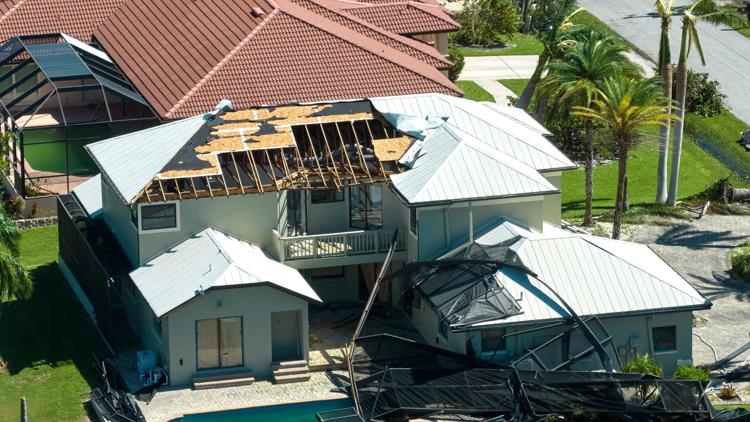How to Avoid Home Repair Scams After a Natural Disaster

After a natural disaster, scammers often prey on vulnerable homeowners who are in urgent need of repairs. It’s essential to be aware of common tactics used by fraudulent contractors to protect yourself and your property.
Imagine the chaos that follows a devastating hurricane. The aftermath is filled with debris, damaged roofs, and the overwhelming task of rebuilding. Unfortunately, this is also the perfect opportunity for scammers to strike.
One VERIFY reader, Anindyo, recently shared their experience of being approached by a contractor offering roof repairs right after a hurricane. This raised concerns about potential home repair scams, prompting us to investigate further.
Common Contractor Scams
Contractor scams are rampant, especially post-disaster, and scammers can employ various deceptive tactics. Some may promise low-cost repairs or claim to facilitate insurance reimbursements, only to vanish after receiving a deposit. The National Council on Aging warns about scammers who exploit homeowners by offering discounted services with false insurance claims.
The Better Business Bureau highlights a scam where homeowners unknowingly sign over their insurance payments for unfinished work. It’s crucial to be vigilant and recognize the warning signs to avoid falling victim to such schemes.
Red Flags to Watch Out For:
- Unsolicited offers with leftover materials
- Pressure for immediate decisions
- Full payment upfront
- Unclear pricing with excessive discounts
- False promises of FEMA relief for a fee
Spotting Legitimate Contractors
To steer clear of contractor scams, conducting thorough research is key. Verify the contractor’s license, insurance, and permits before committing to any work. Seek recommendations from local associations, consumer protection agencies, and review online feedback to assess their credibility.
Obtain written estimates and contracts with detailed payment schedules to prevent financial exploitation. Avoid contractors who demand payment for estimates and always compare multiple quotes to ensure fair pricing.
Reporting Scams and Seeking Assistance
If you encounter fraudulent practices, try to resolve the issue directly with the contractor. Document all interactions and escalate complaints to local consumer protection agencies or home builders associations if necessary. Report scams on platforms like the Better Business Bureau’s scam tracker to alert others and prevent further exploitation.
Post-Disaster Resources
In the aftermath of a disaster, seek assistance from FEMA’s Disaster Housing Program for grants to cover minor repairs. The U.S. Small Business Administration also offers low-interest loans for homeowners in need of substantial repairs. Stay informed and leverage available resources to safeguard your property and finances.




